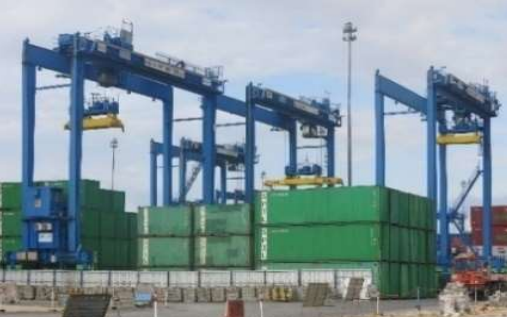Fulfillment of Smart Port Criteria for the Existing Terminal 2 of the New Makassar Container Port
Main Article Content
Abstract
Smart ports are an innovative solution for the world's port industry in the application of integrated technology and environmental sustainability to increase the efficiency and effectiveness of operational services. The concept of smart ports is usually widely adapted to container ports because most of the world's trade is carried by sea in containers. Terminal II of the New Makassar Container Port which is a new container port in Indonesia and is expected to develop into a gateway for world trade in Eastern Indonesia in order to improve the socio-economic region is required to innovate and keep abreast of world port trends. Therefore, to support Terminal II of the New Makassar Container Port to develop into a smart port, a study was conducted to determine the extent to which the port met the criteria for a smart port. In carrying out the research, direct observation and interview methods were used with selected respondents at Terminal II of the New Makassar Container Port. Based on the observation results, it was found that Terminal II of the New Makassar Container Port had fulfilled the productivity criteria in the operational domain and the safety and security management system criteria as well as the Integrated monitoring and optimization system.
Downloads
Article Details

This work is licensed under a Creative Commons Attribution 4.0 International License.
Allow anyone to modify, improve, and make derivative works, even for commercial purposes, as long as they credit to you for the original work.
References
Azhar, Z., Mardiana, H., Hidayat, R. D. R., Himawan, D., & Rahmawati, A. (2018). The Implementation of Smart Port in Tanjung Priok Port for Utilization and Green Port Optimization. Advances in Transportation and Logistics Research, 1, 132-138.
Douaioui, K., Fri, M., & Mabrouki, C. (2018, April). Smart port: Design and perspectives. In 2018 4th International Conference on Logistics Operations Management (GOL) (pp. 1-6). IEEE.
Isdiana, F. N., & Aminata, J. (2019). Analisis ekspor Indonesia dengan anggota Apec melalui moda transportasi laut. Diponegoro Journal of Economics, 9(1).
Min, H. (2022). Developing a smart port architecture and essential elements in the era of Industry 4.0. Maritime Economics & Logistics, 24(2), 189-207.
Molavi, A., Lim, G. J., & Race, B. (2020). A framework for building a smart port and smart port index. International journal of sustainable transportation, 14(9), 686-700.
Putri, R. A. I., Rohayati, Y., & Aisha, A. N. (2015). Evaluasi Pemenuhan Kriteria CPPB-IRT dan Sertifikasi Halal Pada UKM Pelangi Rasa. JRSI (Jurnal Rekayasa Sistem dan Industri), 2(03), 17-24.
Ritonga, R. A. (2022). KESIAPAN IMPLEMENTASI SMART PORT DI INDONESIA. COJ (Coastal and Ocean Journal), 6(1).
Soedjono Kramadibrata, 2002, Perencanaan Pelabuhan, ITB, Bandung.
Valenciaport, F. 2020. Smart Ports Manual: Strategy and Roadmap. Inter-American Development Bank (IDB) (pp.27-29)
Yau, K. L. A., Peng, S., Qadir, J., Low, Y. C., & Ling, M. H. (2020). Towards smart port infrastructures: Enhancing port activities using information and communications technology. Ieee Access, 8, 83387-83404.

